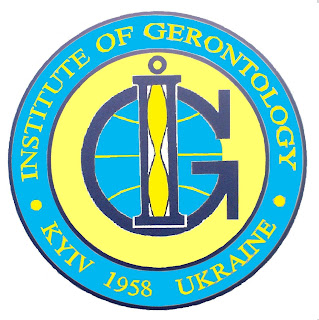Functional age and residual working capacity in pensioners
http://aging-longevity.org.ua/index.php/journal-description/issue/archive
A&L
ISSN 2709-0205
Vol 1 Issue 1 (2020)
Functional age and residual working capacity in pensioners
Oleksandr Poliakov & Olena Tomarevska
State Institution “D. F. Chebotarev Institute of Gerontology NAMS of Ukraine”, Kyiv, Ukraine,
Correspondence: tomarevskaya@gmail.com
Received: 24.01.2020; Accepted: 25.01.2020; Published: 07.07.2020
Olena Tomarevska ˗ MD,PhD, Senior Scientific Researcher of Laboratory Occupational-Labor Rehabilitation,
Social Gerontology and PublicHealth Department; https://orcid.org/0000-0002-4282-6914
Oleksandr Poliakov ˗ MD, PhD, Head of Laboratory Occupational-Labor Rehabilitation,
Social Gerontology and Public Health Department; https://orcid.org/0000-0001-7466-9127
http://dx.doi.org/10.47855/jal9020-2020-1-7
Abstract. This investigation is dedicated to clarifying of physiological mechanisms
of labor activity in subjects of a different gender and age with the purpose of
a theoretical background of rational usage of human residual performance and
rehabilitation of his health. When analyzing the tightness of the
relationships, there is a stronger relationship between the residual
performance and the calendar age than the rate of functional aging and calendar
age. The study of concomitant influencing factors throughout life has been
shown that the presence of labor or family migration within the region, within
and between states; as well as indicators of the length of service, year, age,
and reasons for retirement do not have reliable correlation with the rate of
aging. Reliable correlation associations were found with continued retirement
at the time of the study; with the year of termination of work; and the size of
the total income of the examined individuals - associations in comparison with
the relationship with the calendar age have a weaker connection with the rate
of aging. With indicators of the class of tension and severity, type of work,
class of intensity, class for differentiation of labor according to the ILO
classification. Muscle strength and endurance in the women have expressed age
dynamics. The muscle strength of the women is significantly slashed at 30-35 of
years, and the muscle endurance remains stable up to 55-year’s age. For the men
the dynamics of the muscle strength and endurance have no obvious age trend,
and mostly depend from lifestyle, physical and labor activity. In functionally
young subjects the working physical work capacity is 15-20% higher, compared to
an average level, observed when the functional and calendar ages coincide. The
age-related decline the physical working capacity in the older workers is
decelerated owing to the selection of those who are functionally young and the
elimination of those who age prematurely. The physiological capabilities that
determine 47.54% of the actual performance of people aged 60 - 89 years are
reliably due to accelerated aging. Studies have shown high information content
of using the indicator of residual performance in people over 60 years of age. A
study of residual performance in people over 60 years of age showed that close
to 57% of elderly people and 96.7% of senile people need ergonomic innovations
in work and life to increase physical independence from outside help and
compensate for age-related decline of working capacity.
Key words: Biological age,
residual working capacity, elderly workers, ageing, hand grip strength.
Figure 1. Acceleration of the pace of aging in terms of functional age in people
older than 60 years, taking into account the calendar age and labor history, p ˂ 0.01.
Figure 2. Percent distribution among the examined elderly and senile people by the
type of aging pace due to functional age
Figure
4. Physiological abilities of persons after 60 years
providing residual performance
Citating: Poliakov O.,
Tomarevska O. Functional age and residual working capacity in pensioners // Ageing & Longevity. – 2020. -
Vol.1. – N .1. – С. 40 - 49. http://dx.doi.org/10.47855/jal9020-2020-1-7
References
1.
Kolodchenko V. P. Biological Age of Patients with Osteoarthrosis and
Osteoporosis / V.P. Kolodochenko // Bulletin of orthopedics, traumatology and
prosthetics 2010. – Vol. 64., N. 1. – P. 71 - 75. (Printed on Ukrainian).
2. Kishkun A. A. Biological Age and Aging Processes:
possibilities estimation and control: Guidelines for physicians. M.:
GEOTAR –
Media, 2008. – 976 p. (Printed on Russian).
3.
Ahaladze N.G. and
Yena L. M. Human Biological Age: Estimation of the Pace of Aging, Health and Vitality
/ N. G. Ahaladze and L.M. Yena // K., Irpen: VTF “Perun”, 2009. – 224 p. (Printed on Russian)
4. Method of Estimation of Rate of Aging and Functional
Age of Organism: patient 21851A Ukraine: MKI 5 A 61 B5/00. / Poliakov O. A.,
Korobeynikov G.V. – N 95020586; apl 09.02.95; publ. 30.04.98, Bull. N 2. - 6p. (Printed
on Ukrainian)
5. Mankovskyi N.B., Bachinskaya N.Yu. Cognitive activity
in Aging // Aging and Longevity Issues. – 2008. (17)
N 4. – P. 444 – 450. (Printed on Russian)
6.
Syndrome of mild
cognitive impairment in aging. Methodical recommendations / V.V. Bezrukov,
N.Yu. Bachynska, V.O. Choline et al. - Kiev, 2007. - 36 p. (Printed on Ukrainian)
7.
Belova A.N.,
Schepetova O.N. Scales, tests and questionnaires in medical rehabilitation. M
.: Antidor - 2002 .- 440 p. (Printed on Russian)
8.
Korkushko O. V.,
Chebotarev D. F., Chebotarev N. D. Age-related changes in the respiratory
system during aging and their role in the development of bronchopulmonary
pathology // Ukr. pulmonol. journal - 2005. - 3, No. 49 (additional deposit). -
P. 38–43. (Printed on Russian).
9.
Trakhtenberg I.,
Poliakov A. Essays on physiology and occupational health in elderly person. -
K.: Avicenna, 2007. - 272 p. (Printed on Russian).
10. Poliakov O.A., Tomarevska O.S. Estimation of residual
working capacity in persons 60 years and older. Kyiv. – 2016. – 24 p. (Printed
on Ukrainian).
11. World Health Organization. Integrated Care for Older People (ICOPE) implementation framework: guidance for systems and services. Switzerland. – 2019.






Comments
Post a Comment